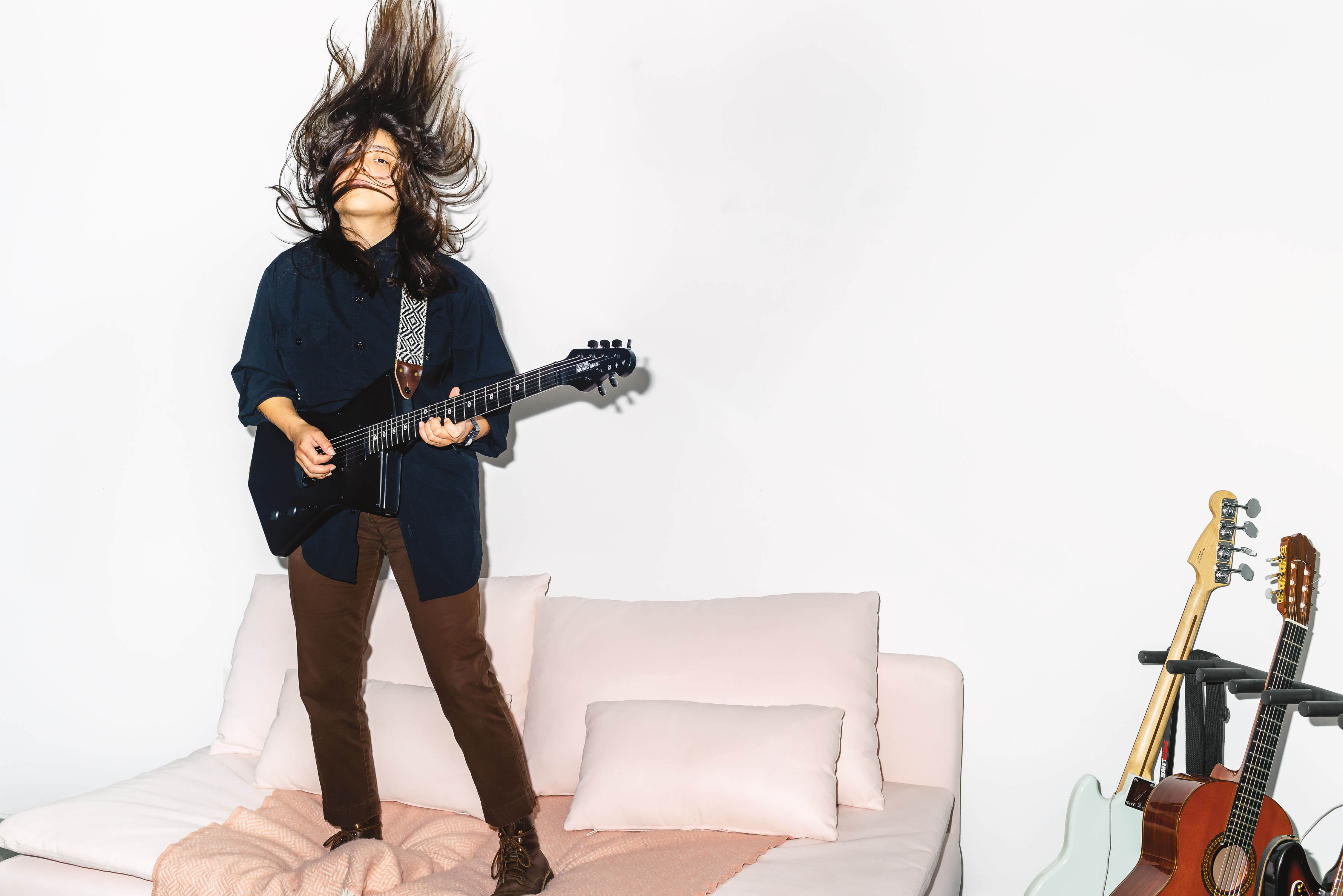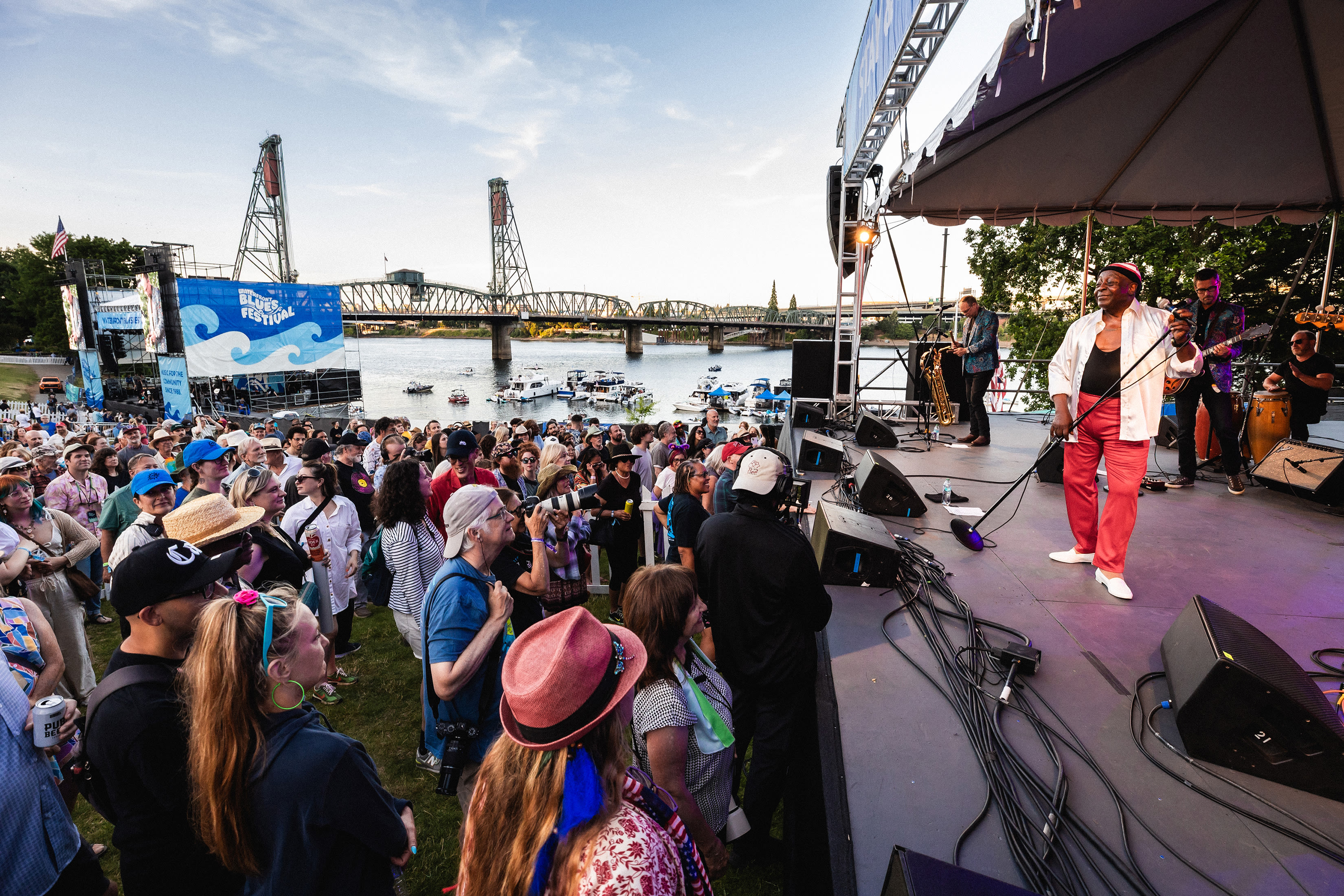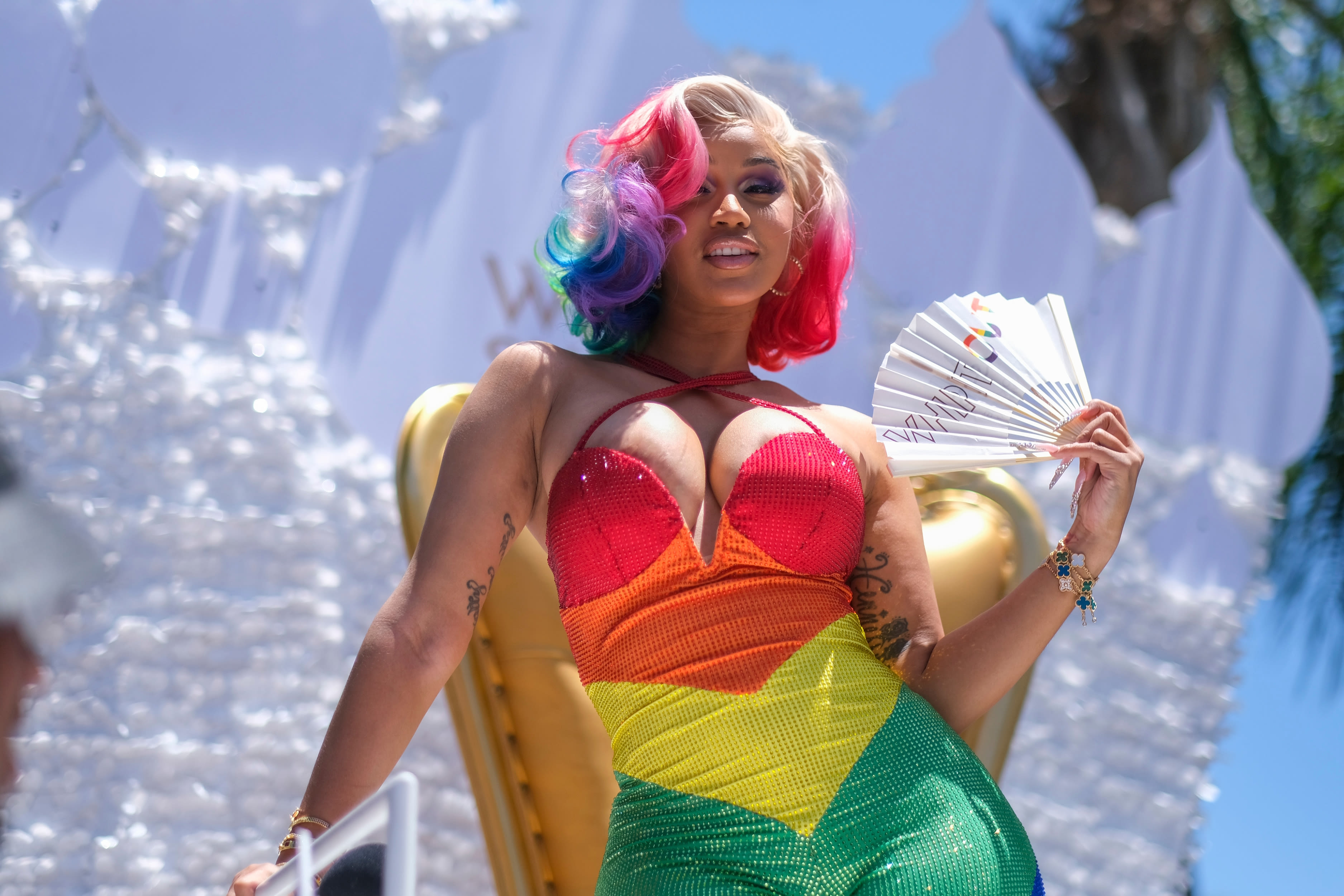Reyna Tropical Is in Concert with the Universe

Image: Michael Raines
Fabi Reyna moves around a lot. She was born in Mexico, grew up in Texas, and spent her teens and 20s in Portland, where she still keeps an address despite being on the road more often than not. She also moves pretty readily through time. Her music, which she releases as Reyna Tropical, foregrounds ancestral dialogues—communing across generations, beyond Eurocentric ideas of life and death.
The concept took on new relevance in 2022, when her bandmate and musical collaborator, the DJ and producer Nectali “Sumohair” Diaz, died suddenly. As a duo, they released an exciting run of singles and EPs, beginning in 2016, that married Reyna’s hypnotic singing and percussive guitar riffs with Diaz’s Afro-Mexican beats. Malegría, Reyna Tropical’s first full-length album, due out March 29, marks Reyna’s entry as a solo performer, in a sense. The title is a portmanteau of the Spanish words for “bad” and “happiness,” a bittersweet sentiment that seems distinctly capable of naming emotions surrounding Diaz’s transition from musical collaborator to spiritual inspiration.
Reyna, 32, is the founding editor of She Shreds Media, an outlet devoted to women and nonbinary guitarists, and her storytelling prowess is on full display in Malegría. “This album is a concrete story,” Reyna says. “It’s a documentary piece.” The 20-track record includes brief dialogues between Reyna and Diaz and five songs built around beats Diaz left behind. (Most of the singing is in Spanish; most of the conversations are in English.) It’s a document of time passed, but it maintains the immediacy of the present tense, a constant in Reyna’s music that she attributes to a reverence for spontaneity and intuition. “I thrive in the unknown,” she says. Leaning into life’s rhythms, for Reyna, is the only way to be in concert with the rest of the universe.

Image: Michael Raines
What’s your studio like?
My house is the only studio I ever record in, which is not really a studio. It’s, you know, a room. But other than that, I don’t record in studios. I record on the beach or just outside. One time we recorded on the lake while people were fishing.
What makes the room special?
I have a really big altar that takes up a whole wall.
I feel like an altar can mean a few different things.
I think that when folks make altar, they’re setting intentions and being present—offering to ancestors, to themselves, the elements, the earth: praying, essentially. It’s always [made from] gifts I receive at shows, or from people that I love, like family heirlooms—a coin or a blanket. Sometimes I’ll take days to clean the altar and bring it back. And sometimes the altar stays [untouched] for two years because it’s perfect for the time.
Is your altar connected to a specific school of spirituality or religion?
Um, I follow the school of aligning with time and earth and duality, multiplicity—taking myself out of the individual and understanding that I’m in a flow with so much. I feel when I’m out of alignment and when I’m in the perfect place at the right time. I can trust to follow that. I don’t know what religion that is, other than paying attention and listening and taking care of my surroundings.
What gets you in the right headspace to work?
If we have five practice days, three of those days are used to just vibe—to go to the beach or hang out and talk. That’s just as important as practicing. If I force myself to practice, or play [without] making the time to align and land, it’s so bad; it’s just a waste of time.
Do you keep a regular schedule?
Absolutely not. I could make excuses, but for whatever reason, for 32 years, I’ve functioned without a schedule. It was just a year and a half ago that I got a calendar.
What are you obsessed with?
If I have an idea for something, even if it’s like, “I want to paint my floor yellow”—which I did the other day—I will obsess over it. I cannot sleep. I’m known to rearrange my whole house in 48 hours.
Where are you a regular?
I was a regular at Sushi Ichiban for years. I like the little moving train. A friend introduced me to it when I was 13, my first year in Portland. It’s nostalgic; Old Portland.
Now that you spend a lot of time outside of Portland, what stands out when you’re here?
You can live here in a non-fearful way, contrasted with the fear of drinking toxic water or not finding health care if you’re trans or need an abortion; coming from Texas, it’s just totally, totally different.
What’s distinct about being an artist in Portland?
A big part of Portland is still really community-oriented: [people] help each other out, especially women and queer folks, at least the community I’m involved in. But you have to do a lot on your own once you leave your community bubble.
What about in Mexico?
We sing for the spirit over there; here, we sing for money. That mentality—How am I going to use music to pay my bills?—is so much heavier than in Mexico, where it’s like, Music heals me and other people; I need to do it.
What was the last great song you listened to?
My friend Xiuhtezcatl just put out a new song called “Careful.” He’s an Indigenous Mexica artist who grew up in Mexico and the US. He sings in Spanish, English, and Nawat. I’m all about fusion and the mixedness of culture, and he does that while honoring his roots.
What does She Shreds allow for that making music doesn’t?
I love finding the other truths in history, especially as they pertain to Black, brown, and Indigenous women, and queer culture, like researching how Sister Rosetta Tharpe was a founder of rock ‘n’ roll. It’s less about expressing and more like [asking], How do I explain this so that thousands of people can understand?
What inspires you outside of music?
I really admire dancers. I love to help people dance, and to help myself dance, because it’s not easy for me. The people on TikTok are fuckin’ incredible.
One Portland-centered piece of art everyone should know?
On N Interstate Ave, there’s this mural, Women Making History in Portland. Since I was 13, I’ve been saying, “I want to be on that mural.”
If you could have coffee with one dead Portland artist?
For sure Lauren K. Newman, who died in 2019. She was the most incredible, out of control, super-extra musician. She played the shreddiest, ’80s-metal, finger-tapping-solos, big-hair type of guitar that I usually hate. But with her, it was wildly entertaining. She was the tiniest person, and so charismatic. It would be really fun to have one more hour with her.
This conversation has been edited and condensed for clarity.




